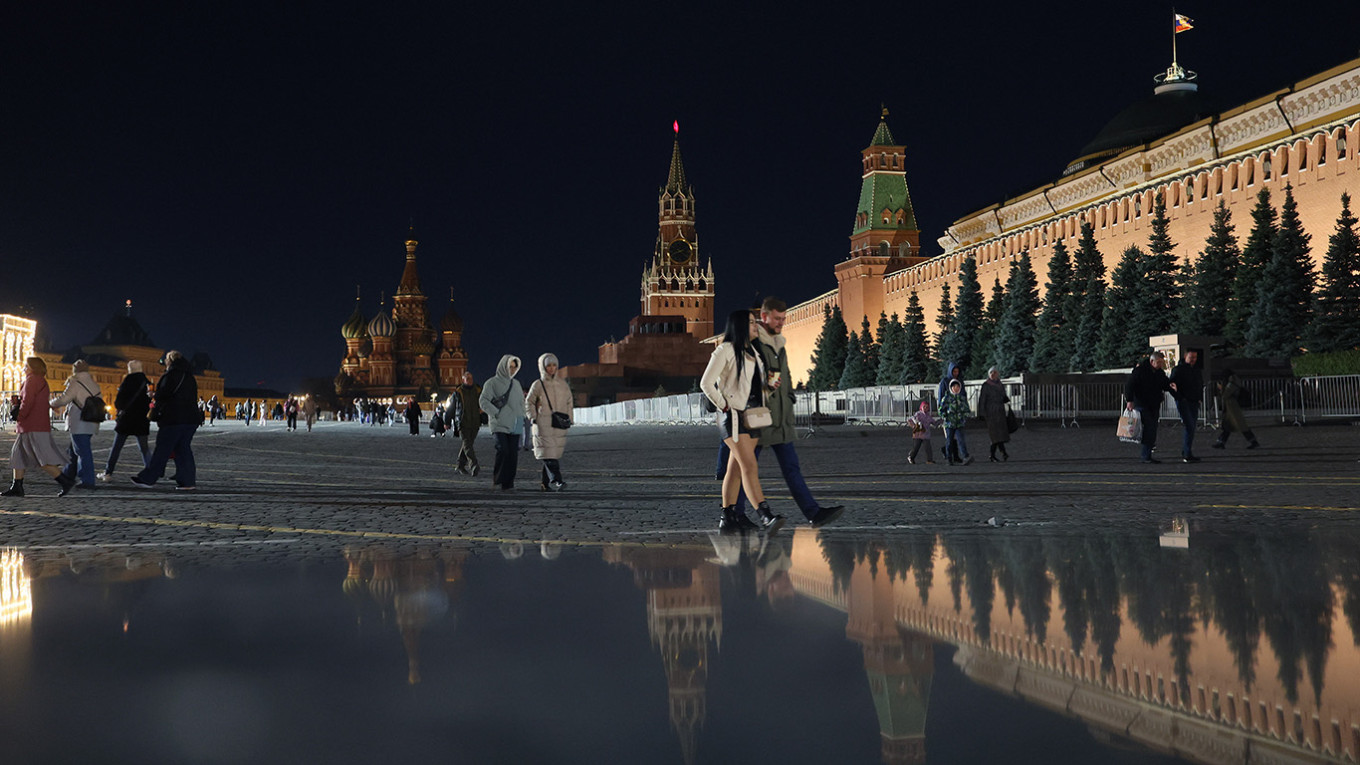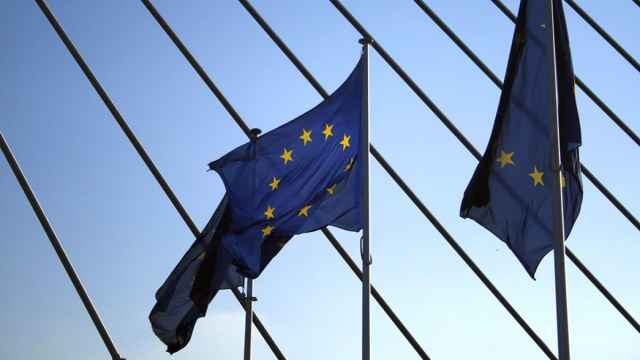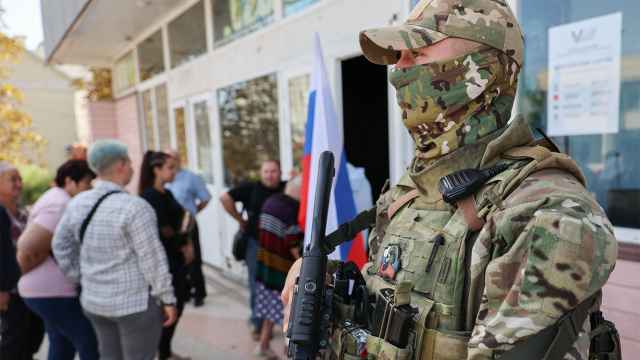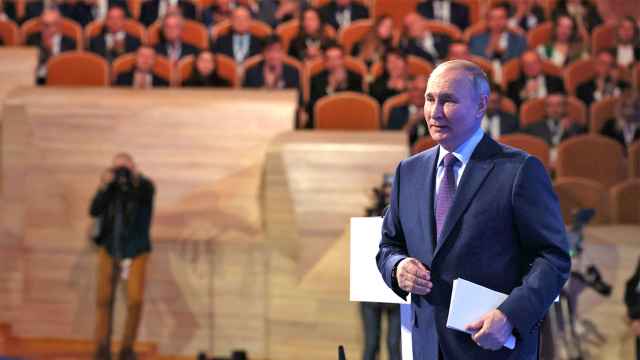When Donald Trump announced plans to shorten the deadline before secondary sanctions kick in on companies doing business with Russia, the Kremlin responded with a shrug.
Stoic statements flowed from Moscow officials, dismissing the move as yet another Western bluff and insisting they are fully prepared — even as the new deadline looms on August 8.
But the markets were not fooled.
The ruble sank almost 3% against the dollar. Russian government bond yields spiked, with 10-year OFZs climbing over 50 basis points. The country’s main stock index retreated 1.5%, with energy giants and state-owned banks leading the slide as investors reacted to rising geopolitical risk.
United States President Donald Trump doubled down on July 31, declaring that the U.S. would definitely impose sanctions. Referring to Russia’s ongoing bombing of Ukraine, he added, “I think it’s disgusting what they’re doing.”
Secondary sanctions do not just block American firms from trading with Russia; they threaten to cut foreign companies off from the entire U.S. financial system if they fail to comply. That puts real pressure on firms in China, India, and Turkey, key buyers of Russian crude that help fund President Vladimir Putin’s war machine.
China and Turkey have signaled they will not bow to U.S. pressure — at least not publicly. China continues to import billions of dollars' worth of Russian crude, while Turkey maintains its trade ties with Moscow and steers clear of Western sanctions alignment.
However, India has started to shift its position. Several Indian refiners have reportedly halted purchases of Russian crude in the past week, a sign that the threat of secondary sanctions may already be biting behind the scenes. According to sources cited by Bloomberg, the Indian government has also instructed refiners to begin preparing plans to source oil from places other than Russia
That said, officials said Saturday that India would continue to source cheap oil from Russia, saying that India’s economic policy could not be decided by another country.
Despite the outward defiance, there are signs of growing unease in India and elsewhere. If Trump follows through, the consequences could be severe: restricted access to the U.S. financial system, steep tariffs and a chilling effect on the banks, insurers and shippers enabling Russian trade.
Secondary sanctions could hit Russia far beyond oil sales by targeting the broader web of countries that still trade with Moscow. From machinery and electronics from Germany and Italy to food and manufactured goods from Brazil and Uzbekistan, Russia relies on this patchwork of economic ties to keep its wartime economy afloat.
Cutting off access to the U.S. financial system could chill those flows, making it riskier for firms and banks in these countries to keep doing business with Russia, even if their governments look the other way. For even the biggest economies, those consequences are tough to ignore.
But there is good reason to doubt how far Trump will go in enforcing full secondary sanctions. China and India are central to wider U.S. strategic interests and it is unclear whether he is truly willing to risk broader cooperation with them for the sake of punishing Russia.
Washington also knows that secondary sanctions imposed on the Kremlin’s trading partners could backfire, driving up costs for U.S. consumers and businesses.
Still, pressure on Russia’s energy sector, which funds roughly 40% of its federal budget, is mounting even before Trump’s deadline arrives.
The EU’s latest sanctions package slashed the price cap on Russian crude to $47.60, blacklisted over 100 shadow tankers, and banned imports of refined fuels tied to Russian oil — all aimed at choking off Putin’s wartime revenue.
Combined with a fast-cooling economy and Trump’s looming threat of secondary sanctions, Moscow may be heading into a perfect storm. The squeeze is now coming from both ends and Russia’s war-hardened economy may struggle to hold the line.
The Kremlin, for its part, has responded to Trump’s ultimatum with a mixture of bemusement and bluster.
Foreign Minister Sergei Lavrov publicly questioned the logic behind Trump’s shifting timelines — from “24 hours, then 100 days” and claimed Moscow simply wants to “understand” the U.S. president’s thinking. But his tone was dismissive, insisting Russia has weathered unprecedented sanctions before and “will handle these new measures too.”
Indeed, Russia has withstood 17 rounds of EU sanctions aimed at its energy, financial, defense, and hybrid capabilities — part of a broader tsunami of nearly 20,000 restrictions imposed globally on its companies and individuals.
More combative was Dmitry Medvedev, who derided Trump’s warning as a “theatrical ultimatum” and warned him against “playing the ultimatum game with Russia.”
But the clearest response came not in words, but in bloodshed. Just hours after Trump’s latest cease-fire demand, Moscow launched a new wave of airstrikes across Ukraine, targeting a hospital in Kamyanske and a prison in Zaporizhzhya, killing at least 17.
The message from the Kremlin was brutal and direct, a clear reminder that Russia’s war aims remain unchanged: to break Ukraine’s will, cripple its infrastructure, and erase its sovereignty.
Putin will not contemplate a ceasefire until he seizes full control of the four Ukrainian regions he now claims as Russian — Donetsk, Luhansk, Zaporizhzhia, and Kherson. And with momentum on his side, there’s little reason to believe he would stop there.
But the real question is whether Trump will actually follow through and hit Putin where it hurts?
Given his long history of deference and open admiration for Putin, whom he has variously called “brilliant,” “savvy” and “a genius, it is hard to tell if Trump’s latest moves signal a genuine policy shift or just another act of political theatre.
His repeated sycophancy toward the Russian leader even raises provocative questions about whether he is acting as a secret Russian agent or merely staging a spectacle to distract from the ongoing Epstein scandal.
Many still believe the Kremlin has kompromat on Trump, which they say explains his unusually servile posture toward Putin. The lurid "pee tape" claims in the infamous Steele dossier were never proven. But years of investigations have never fully erased the suspicion that Moscow holds some kind of leverage over Trump — and his track record of being soft on Russia continues to keep that theory alive.
Either way, this looming deadline feels more like a show designed for headlines than a serious step toward meaningful policy change.
Even Trump himself, usually a strong advocate for sanctions, admitted on July 30: “I don’t know that sanctions bother him,” sounding less like a commander-in-chief and more like an ex still trying to figure out Putin’s inner thoughts.
While this latest gesture hints at some distance from his longtime Kremlin crush, history suggests otherwise. It is more likely to be symbolic — a TACO [Trump Always Chickens Out] rather than a takedown. In other words, it will be a slap on the wrist rather than decisive action that could truly alter the course of the war.
A Message from The Moscow Times:
Dear readers,
We are facing unprecedented challenges. Russia's Prosecutor General's Office has designated The Moscow Times as an "undesirable" organization, criminalizing our work and putting our staff at risk of prosecution. This follows our earlier unjust labeling as a "foreign agent."
These actions are direct attempts to silence independent journalism in Russia. The authorities claim our work "discredits the decisions of the Russian leadership." We see things differently: we strive to provide accurate, unbiased reporting on Russia.
We, the journalists of The Moscow Times, refuse to be silenced. But to continue our work, we need your help.
Your support, no matter how small, makes a world of difference. If you can, please support us monthly starting from just $2. It's quick to set up, and every contribution makes a significant impact.
By supporting The Moscow Times, you're defending open, independent journalism in the face of repression. Thank you for standing with us.
Remind me later.








